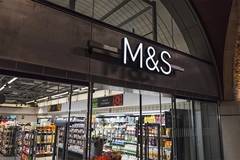
- Industry news
Industry news
- Category news
Category news
- Reports
- Key trends
- Multimedia
- Journal
- Events
- Suppliers
- Home
- Industry news
Industry news
- Category news
Category news
- Reports
- Key trends
- Multimedia
- Events
- Suppliers
Commission Proposes Concrete Actions to Improve Functioning of the Food Supply Chain in the EU

Food price developments have been raising concerns on the functioning of the food supply chain for some time. The sharp decline in agricultural commodity prices of 2008 has failed so far to fully translate into lower food prices at producer and consumer levels. This has become particularly evident in the dairy sector over recent months.

29 Oct 2009 --- The Commission has agreed a Communication that aims to improve the functioning of the food supply chain in Europe. The recent sharp decline in agricultural commodity prices alongside persistently high consumer food prices has raised concerns on the efficiency of this crucial sector of the European economy. Improving commercial relationships between actors of the chain will be a significant step towards a more efficient food supply chain ultimately benefitting all actors of the chain and consumers alike.
" It is very important for the actors of the food supply chain, consumers and policy makers to increase the transparency of prices along the supply chain. The new European monitoring tool on food prices is an important step forward in this direction." Economic and Monetary Affairs Commissioner Joaquin Almunia said.
Mariann Fischer Boel, Commissioner for Agriculture and Rural Development, commented: "As recent developments in the dairy market show, there is too often a disconnection between the price the farmer gets and what the consumer pays in the shops. Together with national authorities, we will redouble our efforts to ensure that the supply chain works effectively from farm to fork. I will ask the High Level Experts' Group on Milk to take an in-depth look at the conclusions of this report and to recommend action where necessary. We need to ensure that our dairy farmers can make a decent living both now and in the future. And the same is true for producers of other farm products."
Today's Communication proposes concrete policy actions at Member States and EU levels to improve the functioning of the food supply chain in Europe.
The food supply chain encompasses important sectors– agricultural, food processing industry and distribution – that together make more than 7% of European employment. These sectors have a direct impact on all citizens, since food represents on average 16% of households' expenditures. It is thus essential that the food supply chain functions well to provide quality and safe food products at affordable prices.
Food price developments have been raising concerns on the functioning of the food supply chain for some time. The sharp decline in agricultural commodity prices of 2008 has failed so far to fully translate into lower food prices at producer and consumer levels. This has become particularly evident in the dairy sector over recent months.
The Communication identifies significant tensions in contractual relations between actors of the chain, stemming from their diversity and differences in bargaining power. It also highlights the lack of transparency of prices along the food chain as well as the increased volatility of commodity prices. Finally, it shows that the internal market for food is still fragmented across products and Member States.
In order to overcome the challenges identified and improve the functioning of the chain, the Commission proposes to:
*Promote sustainable and market-based relationships between stakeholders of the food supply chain:
*The Commission will work with Member States to better identify unfair contractual practices stemming from asymmetries in bargaining power, to increase the awareness of actors on the issue and to facilitate notification of potential abuses;
*In close cooperation with National Competition Authorities, the Commission will continue to closely monitor developments of competition issues within the chain.
Increase transparency in the food supply chain:
*The Commission publishes a first version of the European food prices monitoring tool that will contribute to better understand how food prices evolve and calls for Member States to set up web-based and easily accessible food retail price comparison services;
*The Commission also sets a series of measures to improve the oversight of agricultural commodity derivatives market with the view to contain volatility and speculation.
*Foster the integration of the internal market for food and the competitiveness of all sectors of the food supply chain:
*The Commission will review selected environmental standards and origins labelling schemes that may impede cross-border trade;
*The Commission will assess measures to address the practices of territorial supply constraints by which suppliers "force" retailers to source locally.
*In the primary sector specifically, it should be investigated how farmers' bargaining position can be strengthened, for example by the creation of producer organisations, while respecting the rules of fair competition. This could be done, for example, both in the context of the Rural Development policy and in the broader context of the post 2013 CAP
The Commission will report on the advancement of these proposals by the end of 2010. Since the involvement of stakeholders and Member States is essential to the success of these initiatives, it proposes to expand the membership, status and mandate of the High-Level Group on competitiveness of the agro-food industry to create a forum of discussion for the food supply chain.
This Communication is the outcome of an inter-service Task Force, led by Directorate Generals AGRI and ECFIN, into which the services of Commissioners Kroes and Kuneva contributed actively.










